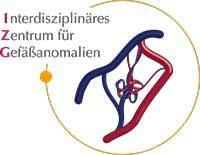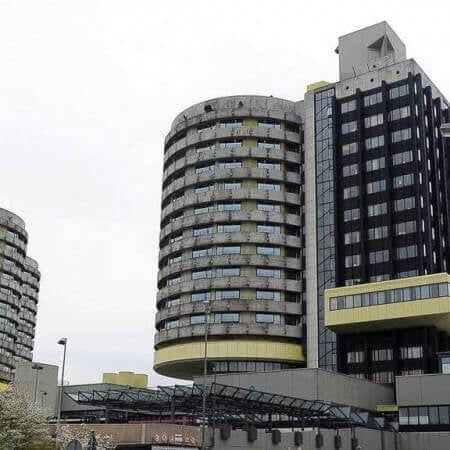Kidney Cancer (renal Cell Cancer) — Embolization or Chemoembolization: treatment in the Best Hospitals in the World
Treatment prices are regulated by national law of the corresponding countries, but can also include additional hospital coefficients. In order to receive the individual cost calculation, please send us the request and medical records.

Department of Interventional Radiology
The Department of Interventional Radiology offers the full range of imaging examinations, as well as innovative image-guided minimally invasive techniques for the treatment of tumors, vascular diseases and internal pathologies (for example, CT, MRI, PET-CT, SPECT). The department's doctors have deep knowledge and colossal experience in the field of interventional radiological methods of treatment, which represent an excellent alternative to open surgical interventions. Despite the high level of technical equipment and the presence of advanced computerized systems, the focus is always on the person with his individual needs. Compliance with current clinical protocols and high professionalism of the department's specialists contribute to the successful clinical practice, as well as the reputability of the department among the best medical facilities of this kind in Germany.




Department of Interventional Radiology and Neuroradiology
The Department of Interventional Radiology and Neuroradiology offers a full range of advanced imaging diagnostics and minimally invasive treatments on both an inpatient and outpatient basis. The department has state-of-the-art medical equipment for imaging tests such as X-ray, computed tomography, magnetic resonance imaging, digital subtraction angiography, and mammography. The medical facility also performs many highly effective interventional therapeutic procedures under image guidance, which in many cases allow patients to avoid traumatic open surgery. For example, the department successfully performs local fibrinolysis, thrombectomy, percutaneous transluminal angioplasty, hemostasis, transarterial chemoembolization, uterine artery embolization, and other procedures. The department's neuroradiologists specialize in brain and spinal cord imaging and the treatment of central nervous system disorders. Interventional neuroradiology focuses on the treatment of carotid artery stenosis, brain aneurysms, arteriovenous malformations, dural fistulas, subdural hematomas, brain tumors, skull base and spinal tumors, and chronic back pain. The department's medical team has extensive clinical experience in their areas of expertise. The specialists are guided by the recommendations of the German Society for Interventional Radiology and Minimally Invasive Therapy (DeGIR) and the German Society for Neuroradiology (DGNR), which helps to achieve the best results.






Department of Adult and Pediatric Diagnostic, Interventional Radiology, Neuroradiology
The Department of Adult and Pediatric Diagnostic, Interventional Radiology, Neuroradiology is one of the best institutions of its kind in Germany and offers patients the full range of radiological studies and imaging-guided minimally invasive therapy. The department’s scope of tasks also includes imaging diagnostics in children of all age groups, detection and invasive treatment of cerebral vascular pathology (neuroradiology). Patient care is provided both on an inpatient and outpatient basis.






About 300 thousand new cases of kidney cancer are diagnosed annually in the world. Approximately 100 thousand people die from this disease. In 10% of patients, at the time of diagnosis of the disease, the tumor grows into large veins, and in 30% distant metastases are detected. At stages 1-2, the main and only method of treatment is surgery. But at 3-4 stages, you have to resort to combination treatment using several methods. One of them is renal artery chemoembolization.
Content
- What is embolization
- How is embolization performed
- Embolization prior to surgery
- Embolization in early stage kidney cancer
- Combination treatment for stage 4 cancer
- Benefits of embolization
- Why it is worth undergoing embolization abroad
- Treatment in Europe with Booking Health at an affordable price
What is embolization
Embolization is a method of cancer treatment that involves blockage of the arteries feeding the tumor. As a result, ischemic necrosis develops – neoplasm tissues die due to insufficient blood supply.
Arterial embolization for the treatment of kidney cancer is often combined with regional chemotherapy. Doctors additionally affect the tumor with a high concentration of drugs that suppress its growth.
Embolization is not the most common treatment for kidney cancer. Doctors more often use other treatment methods, primarily surgery. Basically, medical specialists prefer to use embolization and chemoembolization for patients with unresectable cancer, or in cases where the decision on the advisability of the operation has not yet been made. In this case, embolization, if successful, can be used as a preparation for surgical treatment.
Embolization for kidney cancer allows:
- Reducing swelling.
- Improving its local control.
- Increasing the patient's life expectancy.
- Relieving symptoms and improving quality of life.
- Reducing the risk of complications.
How is embolization performed
Embolization is a minimally invasive X-ray surgical procedure. It is carried out under the guidance of an X-ray examination.
The doctor inserts a catheter into the vessels in the leg. He advances it to the vessels that feed the kidneys. Then these vessels are closed. Different embolization methods can be used: alcohols, spirals, gelatin sponge, microspheres, etc. In any case, the essence of the procedure remains unchanged: the lumen of the vessel feeding the tumor is closed.
Embolization can be superselective. The doctor then does not close the entire renal artery, but only its individual branches feeding the tumor. This is especially important in the case of organ-preserving surgery, with damage to both kidneys, in patients with renal insufficiency. However, if total kidney removal is planned, or the procedure is performed for a palliative purpose, it is possible to perform total renal artery embolization. Kidney function is irreversibly impaired, but the person has a second kidney that can handle the load.
Embolization can be supplemented with chemotherapy. In this case, the doctor injects microspheres saturated with chemotherapy drugs into the renal vessels. They act on the tumor for several weeks after the procedure, providing additional damage to it.
Embolization prior to surgery
The best treatment for kidney cancer is to remove the tumor. But sometimes the neoplasm is too large and is detected only at the stage of venous invasion. A feature of renal cell carcinoma is its ability to spread through the great veins. The vascular wall is necessarily affected. The tumor blood clots spread far up, up to the heart.
A few years ago, such patients were doomed to die, but today there are successful combined surgical procedures to remove tumors. Mortality rates in the best European hospitals are minimal. Life expectancy in case of successful treatment is the same as in patients without tumor thrombosis of large veins.
Such transcatheter procedures as renal artery embolization and chemoembolization make a significant contribution to the success of treatment of advanced kidney cancer. The procedure is performed prior to the operation. It allows for:
- Reducing blood supply to the tumor.
- Reducing the volume and length of blood clots in large veins.
- Destroying the tumor – if successful, up to 90% of cancer cells can die after embolization.
- Reducing the risk of complications during surgery.
After renal artery chemoembolization, surgery is performed in 1-1.5 months. A delay is possible in the case of a borderline resectable tumor, when it is not known whether a radical operation will be performed or not. If the patient responds well to therapy, then such surgery is performed. In this case, the interval between chemoembolization and surgical treatment can reach 4-6 months.
Embolization in early stage kidney cancer
At stages 1-2 of kidney cancer, the disease can only be treated with a surgical technique. Other treatments, such as chemotherapy or radiation therapy, are usually not required. The risk of recurrence does not exceed 1.5-4%.
Embolization cannot be used as an alternative to surgery to destroy the tumor, but can be used to reduce blood loss.
Total or partial kidney removal is the mainstay of cancer treatment. With neoplasms up to 4 cm, the kidney is often removed only partially. For tumors up to 7 cm, the kidney is removed laparoscopically instead of open surgery through a large incision.
Nonetheless, the problem of these operations remains significant blood loss. It can reach 2-3 liters or more. Preoperative superselective renal artery embolization can be used to minimize blood loss and reduce the risk of complications. The technique reduces the time required for surgery. In addition, a well-defined area of necrosis is formed, which is the ideal line of resection.
An additional benefit of embolization is better kidney function after partial organ removal surgery. When performing surgery, the doctor is usually forced to pinch the main trunk of the renal artery to avoid heavy bleeding. But while the intervention continues, the kidney suffers from ischemia (insufficient blood supply), and therefore its function may deteriorate due to the death of part of the renal cells. If the embolization of arteries of a smaller caliber is performed, it is not necessary to clamp the trunk of the renal artery.
Additional benefits of preoperative embolization are as follows:
- Thanks to this procedure, the doctor can opt for partial rather than total kidney removal of the kidney.
- The physician is more likely to prefer laparoscopic surgery over open nephrectomy.
- The length of a hospital stay is reduced.
- A better condition of the patient after surgery, less need for concomitant therapy.
- A shorter rehabilitation period.
Combination treatment for stage 4 cancer
Stage 4 kidney cancer is incurable. But modern medicine is able to give a person a few more years of active life and improve its quality.
As a rule, with metastatic cancer, the kidney is not removed. For local control of the tumor, either renal artery embolization or chemoembolization is used – superselective (blockage of tumor vessels) or total (completely overlapping the lumen of the renal artery). The treatment is complemented by other methods, primarily systemic drug therapy.
Chemoembolization allows:
- Eliminating hematuria (blood in the urine).
- Reducing the tumor and slowing down its further growth.
- Enhancing the immune antitumor response – the effect is achieved due to the death of cancer cells and the ingestion of a large number of antigens into the blood, which stimulate the immune system.
On average, the patients who receive a combination of targeted therapy and renal artery embolization live for about 2 years. The life expectancy of many patients reaches 4-5 years. There were some observations when after embolization in combination with drug treatment people with end-stage kidney cancer lived for more than 10 years.
Benefits of embolization
Embolization is a minimally invasive and safe procedure. It can be used for various purposes in any stage of kidney cancer, from the early one to the end-stage cancer.
The method is characterized by the following benefits:
- It can be combined with any other methods of cancer treatment.
- It reduces the size of the tumor.
- It contributes to minimal blood loss during kidney removal surgery.
- It allows preserving the function of a partially removed kidney due to the absence of the need for clamping the main trunk of the renal artery.
- It reduces the risk of complications from surgery and speeds up the rehabilitation process.
- It reduces the trauma rate of treatment: in some patients who had embolization it is possible to choose in favor of laparoscopy instead of open surgery.
- It reduces the radicalization of treatment: in some patients who had embolization it is possible to choose in favor of resection (partial removal) of the kidney instead of nephrectomy (total kidney removal).
- It accelerates recovery after surgery.
- It stimulates the immune system.
- It improves the quality of life and eliminates hematuria (blood in the urine).
- It can increase life expectancy at the end-stage cancer to an average of 2 years, and sometimes up to 5-10 years.
The method is minimally invasive: the renal artery is accessed through the blood vessels in the leg. The treatment is well tolerated by patients. With superselective embolization, symptoms are minimal after the procedure. With total renal artery embolization, the development of postembolization syndrome is possible. It manifests with back pain and fever. The syndrome stops in 2-3 days, and its manifestations can be relieved with the help of medication.
For patients with inoperable kidney cancer, embolization is one of the best treatment options. It allows achieving local control of the tumor even without surgery. In addition, if the procedure is successful, it is possible to achieve resectability of the neoplasm, and then the patient will receive surgical treatment, which could not be performed under other conditions.
Why it is worth undergoing embolization abroad
The embolization of renal vessels in patients with cancer has been used for decades. The procedure is performed in most countries of the world. Still, wealthy patients prefer to undergo cancer treatment abroad, since the best hospitals in the world achieve more significant results with a lower risk of complications.
There are several reasons why it is worth undergoing renal artery embolization abroad:
- Doctors have experience in applying the procedure at any stage of cancer.
- The latest technologies are used for vascular embolization, so the risk of complications associated with the closure of the lumen of non-target vessels is close to zero.
- Superselective embolization is preferred – the doctor uses a contrast agent to assess the blood supply to the tumor, and injects embolizing agents as close to the tumor as possible. This procedure is more effective and safer.
- At 1-3 stages, embolization is complemented by surgical treatment. Whenever possible, the operation is performed using laparoscopy. Partial rather than total kidney removal is preferred. Successful surgical interventions are performed even for large tumors with tumor thrombosis of large veins.
- For the end-stage disease, embolization is supplemented with the latest methods of conservative therapy. These two methods provide some patients with a life expectancy of 5-10 years or more.
Abroad, most cases of kidney cancer can be successfully treated. But even if the disease is detected late, there are still treatment options available for patients to dramatically improve their quality of life and extend its duration.
Treatment in Europe with Booking Health at an affordable price
To undergo treatment in one of the European hospitals, please use the services of the Booking Health company. On our website, you can see the cost of treatment in different hospitals, compare prices and book a medical care program at a favorable price. The cost of embolization or chemoembolization for kidney cancer (renal cell cancer) is between 24,500 EUR and 41,300 EUR. Renal artery embolization in European hospitals will be easier and faster for you, while the cost of treatment will be lower.
Please leave your request on our website. Our employee will contact you and advise you about treatment in Europe. The Booking Health company will take care of the organization of your trip. We will provide the following benefits for you:
- We will choose the hospital for treatment in Europe, whose doctors specialize in the treatment of renal cell carcinoma.
- We will help you overcome the language barrier, establish communication with your attending physician.
- We will reduce the waiting time for the start of the medical care program and book a doctor's appointment on the most suitable dates.
- We will reduce the price. The cost of treatment in European hospitals will be lower due to the lack of additional coefficients for foreign patients.
- We will take care of all organizational issues: documents for entering the country, transfer from the airport, hotel, interpreter, etc.
- We will prepare a program and translate medical documents. You do not have to repeat the previously performed diagnostic procedures.
- We will provide communication with the hospital after treatment in Europe.
- We will organize additional diagnostic examinations and treatment in European hospitals, if necessary.
- We will buy medicines abroad and forward them to your native country.
- We will help you keep in touch with the hospital and the doctor after treatment in Europe.
You will be treated by the best doctors in the world. The Booking Health employees will help reduce the cost of treatment and solve all organizational issues, and you will only have to focus on restoring your health.
Authors:
This article was edited by medical experts, board-certified doctors Dr. Nadezhda Ivanisova, and Dr. Bohdan Mykhalniuk. For the treatment of the conditions referred to in the article, you must consult a doctor; the information in the article is not intended for self-medication!
Our editorial policy, which details our commitment to accuracy and transparency, is available here. Click this link to review our policies.

